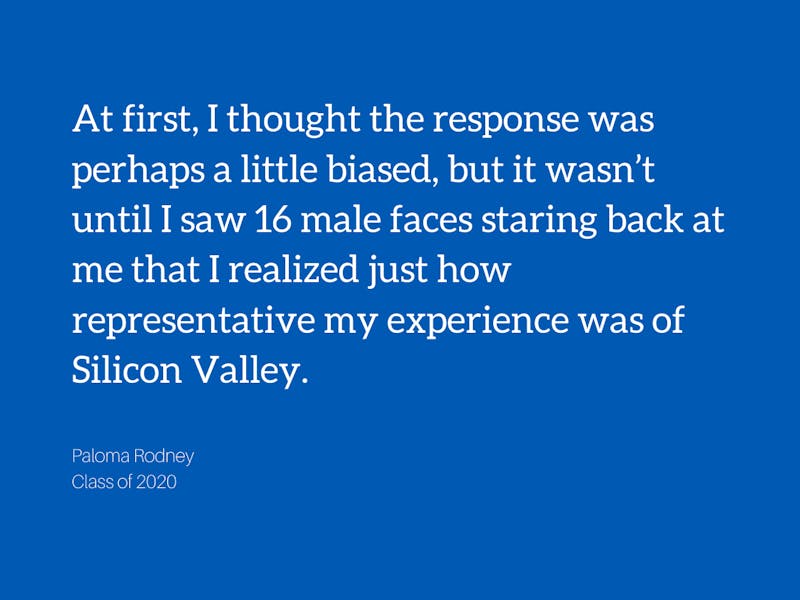
Duke claims to be committed to developing highly ethical adults who are dedicated leaders in their respective communities. Duke already has a great track record in this regard, so I’m certain that many of my peers will be future leaders in their industries. Notable alumni include Tim Cook, Melinda Gates and Louis von Ahn. However, we must also focus on the ethical standards that Duke is replicating on campus.
While Leah Abrams’s column for The Chronicle reveals the injustices that business-oriented groups are perpetuating on campus, something similar is occurring in the computer science groups. Let’s turn our attention to the application GTHC, created by Duke students for Duke students. The application eases the ails of tenting, with a scheduling tool as its main feature. Not only does GTHC automate a tent schedule based on availability, but it also alerts users of their upcoming tent shifts. Goodbye missed tent checks.
GTHC is also a great project to have on a resume for a computer science student. It is a project with real users that shows initiative and teamwork. To learn more about the GTHC team, a user can find the “Meet The Team” page. There, the user will find something that isn’t shocking in the tech industry—but is problematic, nonetheless. The GTHC teams consists of 16 males, ranging in age, role, and race, but there is not a single female-identifying team member.
GTHC does an astounding job replicating Silicon Valley’s heavily male-dominated culture in which gender inequality is still a huge issue. In general, the tech industry is a boys’ club with women making up only 26% of the computing work force. The way women are treated in these tech giants are only more indicative of the culture. On November 1, 2018, thousands of Google employees protested sexual harassment and misconduct at the tech giant.
Some people believe that the answer to getting more women into computer science is putting more women into the pipeline. Silicon Valley executives have access to extremely qualified women through organizations like Girls Who Code and Grace Hopper. At Duke, GTHC had access to DTech, as well as a variety of all-female tech groups. The idea behind these pipelines is that educating girls early about computer science and streamlining their access to opportunities will close the gap. Even with these pipelines, the gender gap in tech is still enormous and doesn’t seem to be improving much. Google reported in 2018 that 30.9% of its employees are women as opposed to 30.6% in 2014. Facebook has increased from 31% women in 2014 to 36% in 2018. Our progress is minuscule and cannot be expected to accelerate on its own.
The issue with the gender inequality in tech is not just a pipeline problem, but also a bias problem. When tech companies are recruiting, they look for candidates who fit their established culture. When companies come across female candidates who are described as temperate, women are negatively impacted not because they are unqualified, but because of the stereotype that women must be quiet and should submit—which translates to the bias that women cannot hold their own in the workplace.
When tech companies defend their gender inequality by saying they have not come across enough qualified female candidates, they need to check their biases. And GTHC is no different. I applied to be a member of the GTHC team and was told that the most important reason I was not given the position on the team was because I would not be able to hold my own on the team and get in people’s faces. At first, I thought the response was perhaps a little biased, but it wasn’t until I saw 16 male faces staring back at me that I realized just how representative my experience was of Silicon Valley.
Time and time again, tech companies seem to value product over ethics. Facebook, for example, chose to not change their policies for political advertisements in order to preserve the core integrity of their product as an advertising tool. Similarly, GTHC placed more priority on finishing the product than on pursuing the high ethics that Duke claims to teach us. The only excuse that the GTHC team has is that gender equality was not a priority for their team, which is no different from the current culture of Silicon Valley. That status quo is a nightmare because if our future leaders have no regard for the ethical importance of gender equality, we will never see sustainable change in the industry.
Paloma Rodney is a Trinity senior.
Get The Chronicle straight to your inbox
Signup for our editorially curated, weekly newsletter. Cancel at any time.
"computer" - Google News
February 06, 2020 at 12:00PM
https://ift.tt/2ty7VgO
Duke computer science—aka the boys' club - Duke Chronicle
"computer" - Google News
https://ift.tt/2PlK2zT
Shoes Man Tutorial
Pos News Update
Meme Update
Korean Entertainment News
Japan News Update
No comments:
Post a Comment